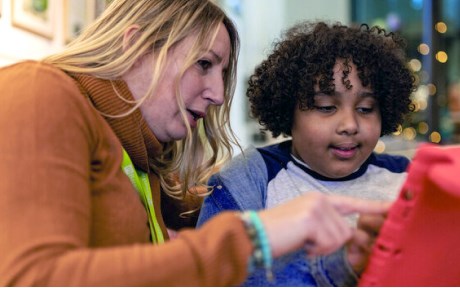
Information, advice, and support is available through:
- Our direct telephone line: 0239 323 3656
- Our enquiry form
- Email: PortsmouthSENDIASS@barnardos.org.uk
- Face-to-face meetings
We provide information, advice and support for children and young people who are:
- aged 25 or under
- are disabled or who have special educational needs. (Special educational needs are when you need extra support to learn things).
You can come to us if you want some help with getting the right kind of:
- Support at school, college or training
- Health services
- Care and support
Most people who are 16 years old or more and have finished Year 11 can make their own decisions about their school or support.
If you would like a parent or carer to help then that is OK. It is up to you.
If you are under 16 years old, then we will need to talk to your parents or carers before we make any decisions.
Our service is impartial. This means we will not tell you what to do. We will not take sides.
We will give you the information and support you need to make your own choices.
Our service is confidential. That means our meetings will be private. We will only tell people what we talk about if you say it is ok. We also need to tell someone if we think you are in danger of being hurt.
If you are not happy with our support then please tell us how we can make it better!
